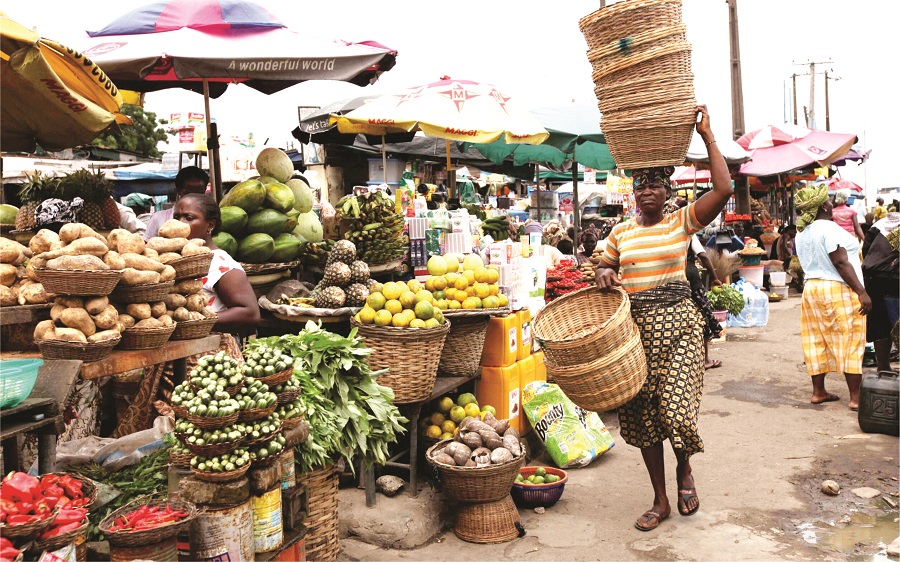Nigeria’s inflation rate for the month of July 2021, dropped further to 17.38% compared to 17.75% recorded in June 2021. This represents a 0.37% decline in the rate of inflation compared to the previous month.
This is contained in the recently published consumer price index report by the National Bureau of Statistics (NBS).
The latest inflation report also indicates a 4th consecutive decline in the inflation rate. It is worth noting that despite the subtle decline recorded in the review month, prices of goods and services increased significantly as the CPI surged by 17.38% compared to the corresponding period of 2020.
On month-on-month basis, the Headline index increased by 0.93% in July 2021. This was 0.13% points lower than the rate recorded in June 2021 (1.06%).

Food inflation
Food inflation, which is a closely watched index declined to 21.03% compared to 21.83% recorded in the previous month. The rate of increase of the food index has also recorded a consistent decline for the fourth consecutive month.
On month-on-month basis, the food sub-index increased by 0.86% in July 2021, down by 0.25% points from 1.11% recorded in June 2021.
This rise in the food index was caused by increases in prices of Milk, Cheese and Eggs, Coffee, Tea and Cocoa, Vegetables, Bread and Cereals, Soft drinks, and Meat.
Core inflation
The ”All items less farm produce” or Core inflation, which excludes the prices of volatile agricultural produce stood at 13.72% in July 2021, up by 0.63% when compared with 13.09% recorded in June 2021.
The core inflation had recorded two consecutive declines as of the previous month, however, significant increases in the prices of non-food items and services pushed the inflation figures up in the month of July 2021.
Notably, the highest increases were recorded in prices of Garments, Shoes and other footwear, Clothing materials, other articles of clothing and clothing accessories, Vehicle spare parts, Major household appliances whether electric or not, pharmaceutical products, cleaning, repair and hire of clothing, furniture and furnishing, medical services and hospital services.
On month-on-month basis, the core sub-index increased by 1.31% in July 2021. This was up by 0.50% when compared with 0.81 percent recorded in June 2021.
Meanwhile, the urban inflation rate dropped to 18.01% in July 2021 from 18.35% recorded in June 2021, while the rural inflation rate stood at 16.75% in July 2021 from 17.16% in June 2021.
What this means
The latest inflation figure prints a less harsh situation compared to the previous month; that is, Nigeria’s spent more in July 2021 compared to July 2020, but not as much as the increase recorded when comparing June 2021 and 2020.
This also implies that inflationary pressures are beginning to consistently trickle down, however, the rate of decline is still slow, as 17.38% is still very high compared to returns on investors of various investment portfolios in the country.









